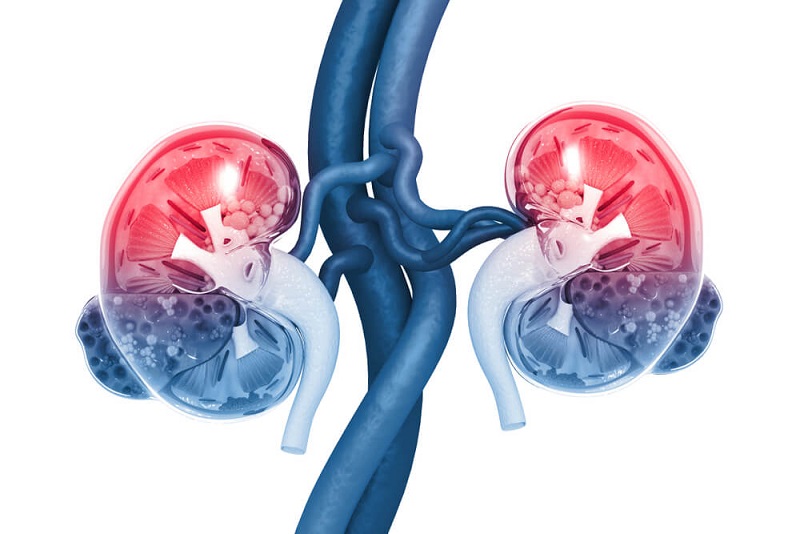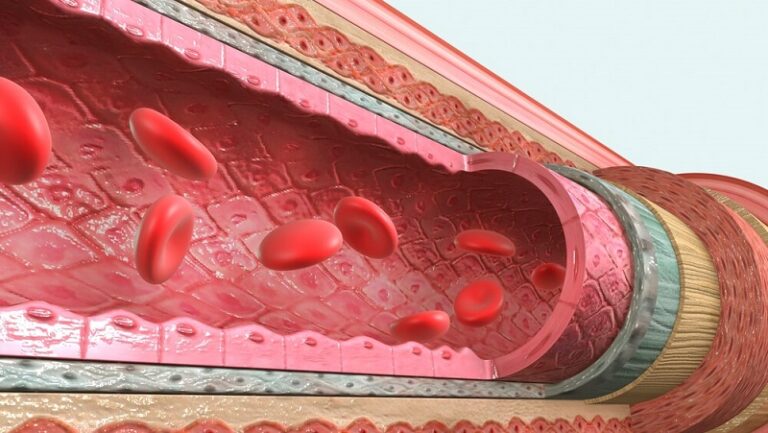Role of Kidney
The kidney has a variety of crucial roles in preserving health, including activating hormones, preserving steady blood levels of essential molecules, and excreting pollutants. Based on research, there are 4 common causes of kidney dysfunction. Most people believe that the liver plays the biggest role in detoxification, followed by the kidneys. One may argue that these microscopic organs are more crucial than the liver for toxin removal because 20% to 25% of cardiac output passes through them, enabling them to filter the blood 60 times per day. They eliminate waste products from metabolism such ammonia, urea, uric acid, creatinine, byproducts of the breakdown of haemoglobin, and hormone metabolites from the body.
Although the kidneys are efficient at eliminating numerous toxins from the blood, some of them are challenging to afterwards excrete into the urine. This indicates that they build up in the kidneys, where they can harm the kidneys significantly as their concentration rises. Cadmium is a good example of this issue.
There are three ways that the kidney gets rid of toxins:
- Filtration through the glomeruli
- Passive diffusion, usually from the distal tubules
- Active processes where the toxins are moved from the blood into the urine.

Causes of Kidney Dysfunction
The kidney can be harmed by a number of factors, including: (1) inadequate blood flow; (2) mitochondrial dysfunction; (3) overload by high total levels of toxins; (4) indirectly by toxins that induce general tissue damage and (5) directly by toxins that are specifically detrimental to the kidney tissues.
1. Heavy Metals
Cadmium is a major issue. It is extremely challenging to excrete and has a concerning half-life of more than 10 years. The kidneys are particularly affected by cadmium since they carry 50% of the body’s burden. Much of the cadmium that enters the body is linked to metallothioniens. These substances are removed by the glomeruli, but after being reabsorbed by the tubules, they get stuck there. A steady stream of highly dangerous free cadmium is emitted when the metallothioniens progressively decay. It induces oxidative stress to the tubules even though it later passively migrates into the urine. The kidney damage caused by cadmium may help to explain why it causes a startling 20% of osteoporosis.
Mercury has a strong affinity for the kidneys. In fact, 50% of the mercury that enters the bloodstream after exposure ends up in the kidneys within a few hours. Both the glomeruli and the tubules are harmed by mercury. There is not enough ATP for the cells to protect themselves from the poisons they are excreting, which appears to be the cause of a large portion of the tissue damage. The biggest sources of mercury are eating large fish and so-called “silver” fillings, which are actually 55% mercury.
Glyphosate The herbicide glyphosate seems to cause major kidney issues. Under names like Roundup, it is widely used in conventional agriculture and in household environments.
2. Smoking
Smoking harms the kidneys. Because nicotine narrows the blood arteries leading to the kidneys, it has a high cadmium content and reduces glomerular filtration. Additionally, it causes the kidneys’ fibrotic pathways to become more active and to produce more reactive oxygen species.
3. Excessive Salt Consumption
Excessive salt consumption is another major issue for the kidneys, which some studies believe may be a major factor in their deterioration. The kidneys appear to become so overloaded by the 2 to 6 extra grams of salt that the average person takes each day that it affects how well they can get rid of other pollutants, particularly acidic metabolic waste products. Because salt was scarce for millennia while our species evolved, we had to create efficient methods of salt retention.
4. Excessive Phosphates Consumption
The hormonal control of phosphorus, calcium, and vitamin D is severely disrupted by high phosphorous ingestion, leading to disordered mineral metabolism, osteoporosis, cardiovascular disease, and decrease kidney function.
Toxins are excreted less often when there is less blood flow to the kidneys. Excessive phosphates impair glomerular filtration rate, harm tubules, and worsen fibrosis, which blocks blood arteries. Phosphate removal is a major challenge for the kidneys, and rising phosphate levels in the blood are one of the early symptoms of kidney failure.
how to improve kidney function
You can protect them by avoiding or controlling medical problems like diabetes and high blood pressure that harm the kidneys. The list below is some of the way to reduce kidney dysfunction. (1)
1. Healthy Diet
Pick fresh fruits, fresh or frozen veggies, whole grains, low-fat or fat-free dairy products, and other heart- and body-healthy foods. Eat wholesome meals and limit your intake of salt and extra sweets. Aim for a daily salt intake of no more than 2,300 milligrams. Less than 10% of your daily calories should come from added sugars.
2. Exercise
Exercising at least 30 minutes a day has shown to reduce kidney damage.
3. Get Enough Sleep
7 to 8 hours of sleep each nigh would be beneficial for kidney.
4. Limit Alcohol Consumption
Excessive alcohol use can raise blood pressure and add extra calories to the body, which can result in weight gain. If you do use alcohol, keep your intake to two drinks per day for men and one drink per day for women.
5. Keep Calm & Reduce Stress
Emotional and physical health can be enhanced by learning stress management techniques, relaxation techniques, and problem-solving strategies. Physical exercise, as well as mind-body exercises like yoga, tai chi, or meditation, can all help lower stress.

types of kidney disease
The two main are short-term (acute kidney injury) and lifelong (chronic kidney disease). Most people recover fully from a short-term kidney disease, but it can increase their risk of developing a chronic kidney disease later in life.
1. Acute Kidney Injury
The brief loss of kidney function lasting less than three months is referred to as an acute kidney injury. It often develops quickly in reaction to a kidney-related injury, disease, drug use, kidney obstructions, or a variety of other reasons. Some people will require a brief course of dialysis to aid in the recovery of their kidneys.
Many people experience an acute kidney injury, fully recover, and resume their regular lives. However, there is an increased chance of later developing chronic (or continuous) renal disease if major damage has already been done. Because of this, it’s critical to appropriately monitor your kidney health for the rest of your life if you have experienced an acute kidney damage.
2. Chronic Kidney Disease
Chronic kidney disease results when your kidneys have sustained irreversible damage. The ailment must have existed for at least three months in order to be identified as a chronic kidney disease. With chronic kidney disease, you can continue to lead a normal life for many years. However, a lot of patients will eventually require kidney replacement therapy as their kidneys’ capacity to filter their blood continues to deteriorate. This could take the form of kidney transplantation or dialysis.
Chronic kidney disease has a wide range of potential causes, including genetics, infection, immunological conditions that harm your kidneys, diabetes, and high blood pressure.
*Special credit to Kidney Health Australia and National Center of Biotechnology Medicine
Recommended For You






